Last week, Cisco (NASDAQ: CSCO ) dropped a financial news bomb. It plans to deliver pink slips to 6,000 employees. Sadly, this news shouldn't surprise anyone who's been watching the market for a while. Like barbecues, pools, and relaxing, lay-around vacations, Cisco's been making layoffs a summer tradition.
Many investors cut companies a break for reductions in workforces, generally assuming they will juice profits. In truth, companies like Cisco are playing a dangerous game. We can't underestimate the risks that layoffs will destroy value instead of add to it.
History repeats at Cisco
Cisco didn't deliver great results when it made its announcement. Last year, its revenue fell on an annual basis for the first time in five years , dropping 3% to $47.1 billon. Although earnings per share dropped 20%, it still generated $1.49 per share. Despite less-than-rocking numbers and the need to contend with an evolving times, the company's not exactly in dire straits.
Here's a rundown of other layoff events at Cisco.
Last June, Cisco cut 4,000 jobs. It made that move despite the fact that it was still a profitable company with cash on its balance sheet. That should have raised eyebrows. In other words, things weren't that bad, unless one is worried about short-term profits, stock price, and what Wall Street thinks. In 2012, Cisco reduced its head count by a less dramatic but still considerable 1,300 . In 2011, Cisco sent 6,500 employees packing.
This time around, CEO John Chambers said that this latest layoff isn't about putting a lid on costs, but rather, it's "investing for growth." That seems awfully flip after repeatedly utilizing this tactic and not exactly providing the kinds of results people have been looking for.
Given Cisco's profitability and the $52 billion on its balance sheet , are repeated layoffs really justified? Although many investors probably hope for some strategically smart acquisitions, many companies' acquisitions end up falling flat over years' time. Some people invest in their workers; others throw money around on window dressing that covers confused strategy.
A tech layoff triple play
Of course, despite the economic recovery that's been publicized, Cisco isn't the only tech company that's pushing people back to the unemployment office.
In May, Hewlett-Packard (NYSE: HPQ ) announced its intention to cut 16,000 jobs. That's a breathtaking number, but it's even more shocking given its previous plan to jettison 34,000 jobs, really putting the "massive" in "mass layoffs ." Maybe these changes will improve the future, but it's still a major risk that shouldn't be ignored.
Microsoft (NASDAQ: MSFT ) has joined the litany of major tech layoffs. A month ago, it revealed that it will reduce its workforce by 14%, representing 18,000 jobs . About 12,000 of those jobs are connected to its acquisition of Nokia, which it paid $7.2 billion for last September .
More can be lost than won
Restructuring. Right-sizing. Streamlining. Cost cutting. These words describe layoffs, but such terms and numerical descriptions deflect the concept that actual people will lose their jobs.
The problems here aren't limited to sentiment, though. The danger also relates to business strategy. Deteriorating employee morale is bad for any business. That's how managements can kill innovation, not to mention shrink the will to come to work and do a good job at all.
Engaged workers are the best workers. If they're treated well and excited about their work days, feeling appreciated and rewarded, there's far more incentive to shine.
Lost talent is another huge risk. In the case of the tech world, the new guard is well under way -- they're boosting their workforces and looking for many ways to make their employees happy. Companies like Google (NASDAQ: GOOG ) , Facebook (NASDAQ: FB ) , and LinkedIn (NYSE: LNKD ) offer their employees benefits and perks that short-term cost-oriented managements would likely call insane.
There's absolutely nothing crazy about fostering a workforce that doesn't see much reason to leave; feeling appreciated and garnering more than just a paycheck builds loyalty. Why would employees love their jobs, or feel any loyalty at all, if their companies' management teams display scary, short-term strategies, and when they screw up, have axes that are apparently kept well-sharpened and ready, easily in reach.
Last but not least, employee turnover is actually a major cost, not a benefit. It's a lesson that's apparently hard learned for many corporate managers that treat people as a commodity to be used until it doesn't seem useful anymore.
Changing the perception of layoffs
Layoffs are scary; many of us know how painful it is to be shown the door. In the grander scheme of things though, more people, especially investors, should be extremely concerned about the ripple-effect ramifications of mass layoffs, especially in the companies they own. It's time for a perception change: these can be more about managements' failed strategies than anything employees did. Shareholders shouldn't accept them with bullish excitement, or a status quo shrug.
Leaked: Apple's next smart device (warning, it may shock you)
Apple recently recruited a secret-development "dream team" to guarantee its newest smart device was kept hidden from the public for as long as possible. But the secret is out, and some early viewers are claiming its everyday impact could trump the iPod, iPhone, and the iPad. In fact, ABI Research predicts 485 million of this type of device will be sold per year. But one small company makes Apple's gadget possible. And its stock price has nearly unlimited room to run for early in-the-know investors. To be one of them, and see Apple's newest smart gizmo, just click here!
Check back at Fool.com for more of Alyce Lomax's columns on environmental, social, and governance issues.




 ) reported its fourth quarter results before the opening bell on Tuesday morning, posting a 6.4% increase in revenues and a 1.4% increase in adjusted EPS compared to last year’s Q4.
) reported its fourth quarter results before the opening bell on Tuesday morning, posting a 6.4% increase in revenues and a 1.4% increase in adjusted EPS compared to last year’s Q4.
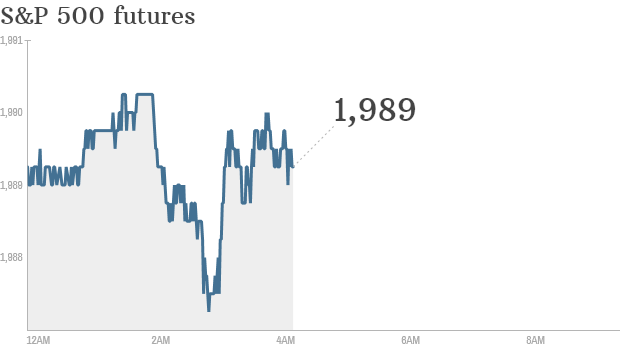 Click chart for in-depth premarket data. LONDON (CNNMoney) What does the market have in store today?
Click chart for in-depth premarket data. LONDON (CNNMoney) What does the market have in store today?  Clorox
Clorox 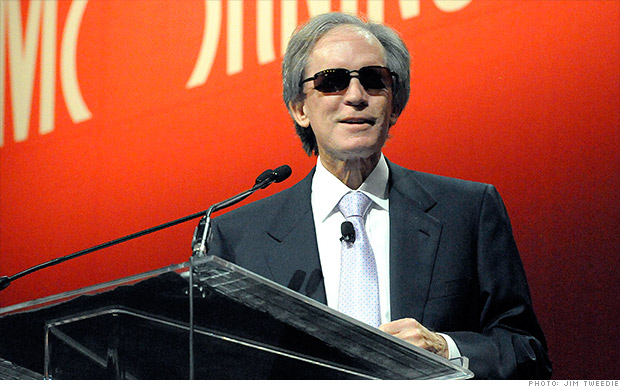 Is Bill Gross' future at Janus really that bright? Only time will tell. NEW YORK (CNNMoney) The bond king has left the building. Should investors run for the exits too?
Is Bill Gross' future at Janus really that bright? Only time will tell. NEW YORK (CNNMoney) The bond king has left the building. Should investors run for the exits too?  Michael Dwyer/AP WASHINGTON --€" Average long-term U.S. mortgage rates declined slightly this week, after marking their largest one-week gain of the year the previous week. Mortgage company Freddie Mac said Thursday that the nationwide average for a 30-year loan eased to 4.20 percent from 4.23 percent last week. The average for a 15-year mortgage, a popular choice for people who are refinancing, slipped to 3.36 percent from 3.37 percent. At 4.20 percent, the rate on a 30-year mortgage is down from 4.53 percent at the start of the year. Rates have fallen even though the Federal Reserve has been trimming its monthly bond purchases, which are intended to keep long-term borrowing rates low. The purchases are set to end next month. Last week, the average rate on the 30-year loan jumped to 4.23 percent from 4.12 percent a week earlier, amid market speculation that the Fed might abandon its nearly 6-year-old policy of keeping short-term interest rates at record lows. But at their meeting that ended last Wednesday, Fed policymakers decided to keep the low rates, at least for a few more months. Fewer Americans bought homes in August, as investors retreated from real estate and first-time buyers remained scarce, data released Monday by the National Association of Realtors showed. By contrast, the Commerce Department reported Wednesday that sales of newly constructed homes surged in August, led by a wave of buying in the West and Northeast. It was the fastest sales pace since May 2008. It was seen as a clear sign of improvement for a real estate market that has been muddled in recent months, as the rebound in home sales that followed the housing bust began to slow.
Michael Dwyer/AP WASHINGTON --€" Average long-term U.S. mortgage rates declined slightly this week, after marking their largest one-week gain of the year the previous week. Mortgage company Freddie Mac said Thursday that the nationwide average for a 30-year loan eased to 4.20 percent from 4.23 percent last week. The average for a 15-year mortgage, a popular choice for people who are refinancing, slipped to 3.36 percent from 3.37 percent. At 4.20 percent, the rate on a 30-year mortgage is down from 4.53 percent at the start of the year. Rates have fallen even though the Federal Reserve has been trimming its monthly bond purchases, which are intended to keep long-term borrowing rates low. The purchases are set to end next month. Last week, the average rate on the 30-year loan jumped to 4.23 percent from 4.12 percent a week earlier, amid market speculation that the Fed might abandon its nearly 6-year-old policy of keeping short-term interest rates at record lows. But at their meeting that ended last Wednesday, Fed policymakers decided to keep the low rates, at least for a few more months. Fewer Americans bought homes in August, as investors retreated from real estate and first-time buyers remained scarce, data released Monday by the National Association of Realtors showed. By contrast, the Commerce Department reported Wednesday that sales of newly constructed homes surged in August, led by a wave of buying in the West and Northeast. It was the fastest sales pace since May 2008. It was seen as a clear sign of improvement for a real estate market that has been muddled in recent months, as the rebound in home sales that followed the housing bust began to slow.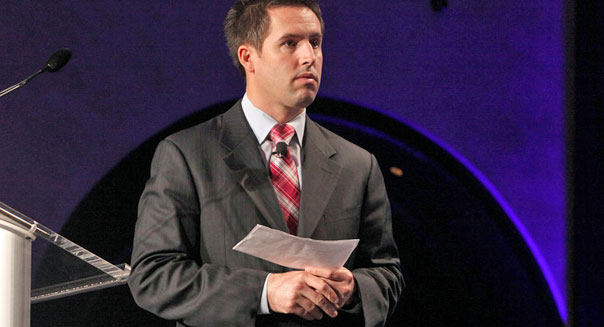 Casey Rogers/Walmart via APWalmart chief communications officer David Tovar resigned his post last week. Walmart Stores' chief spokesman David Tovar resigned after the company allegedly found that he had lied about his academic record in his resume, Bloomberg reported, citing a person familiar with the matter. While conducting a due-diligence screening, Walmart (WMT) discovered that Tovar had lied about receiving a bachelor of arts degree from the University of Delaware in 1996, the report said. An academic-records official from the University of Delaware confirmed to Bloomberg that Tovar never received the diploma. Tovar, who announced his resignation last week, couldn't be reached by phone and didn't respond to an email seeking comment. Walmart was also not immediately available for comment outside regular U.S. business hours. More from Reuters
Casey Rogers/Walmart via APWalmart chief communications officer David Tovar resigned his post last week. Walmart Stores' chief spokesman David Tovar resigned after the company allegedly found that he had lied about his academic record in his resume, Bloomberg reported, citing a person familiar with the matter. While conducting a due-diligence screening, Walmart (WMT) discovered that Tovar had lied about receiving a bachelor of arts degree from the University of Delaware in 1996, the report said. An academic-records official from the University of Delaware confirmed to Bloomberg that Tovar never received the diploma. Tovar, who announced his resignation last week, couldn't be reached by phone and didn't respond to an email seeking comment. Walmart was also not immediately available for comment outside regular U.S. business hours. More from Reuters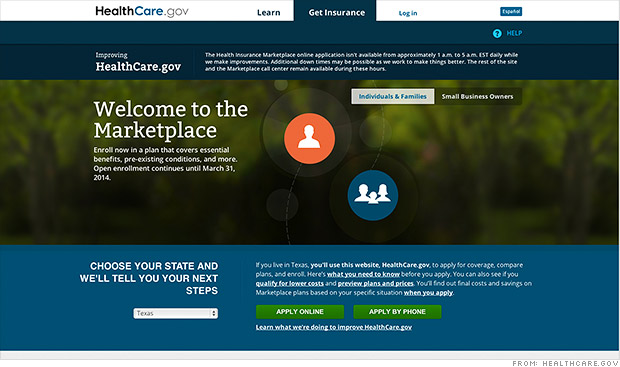 NEW YORK (CNNMoney) Americans will have more choice when they shop on the Obamacare exchanges this fall for health insurance.
NEW YORK (CNNMoney) Americans will have more choice when they shop on the Obamacare exchanges this fall for health insurance.  Bradley C. Bower/Bloomberg/Getty Images In any given week, some stocks are sure to shoot up, and others will plummet. The big gainers inspire us to keep investing. The presence of the decliners keeps our greed in check while reminding us about the risks of the equity markets. Let's go over some of last week's best and worst performers. Avanir Pharmaceuticals (AVNR) -- Up 64 percent last week Last week's biggest gainer was Avanir Pharmaceuticals. The volatile biotech soared after revealing favorable clinical trials data on its AVP-923 drug candidate that treats agitation associated with Alzheimer's. This is a major hurdle cleared on the long path to gaining regulatory approval, but this is just the second of three clinical trial phases that Avanir needs to shine through to get its treatment on the market. Novatel Wireless (NVTL) -- Up 33 percent last week Novatel Wireless moved higher after IT products distributor and services provider Synnex announced an expanded deal to offer Novatel products throughout the U.S. and Canada. H.C. Wainwright followed by initiating coverage of Novatel with a buy rating and a $4 price target that it deems as conservative and one that it's likely to raise "sooner rather than later." Apogee Enterprises (APOG) -- Up 14 percent last week There weren't too many companies reporting quarterly results last week, but Apogee was one that managed to shine through. The provider of value-added glass products and services saw revenue soar 30 percent in its latest quarter. Adjusted earnings climbed 67 percent to $0.35 a share, beating Wall Street expectations. The strong showing finds Apogee raising its outlook for fiscal 2015. VirnetX (VHC) -- Down 65 percent last week The market's biggest loser was VirnetX, shedding nearly two-thirds of its value after an unfavorable patent ruling. The U.S. Court of Appeals for the Federal Circuit rejected a jury award of $368.2 million that VirnetX initially won against Apple (AAPL) in 2012 for patent infringement related to virtual private networking and FaceTime. Investors were hoping that VirnetX would not only hold on to the initial jury award but also see it expanded in light of subsequent Apple product releases. Rite Aid (RAD) -- Down 18 percent last week Drugstore operator Rite Aid posted better-than-expected results -- the chain's eighth consecutive quarterly profit -- but came undone with a problematic outlook for the balance of the year. Lower reimbursement rates and leaner margins on new generics are forcing Rite Aid to lower its profit guidance for the entire year. Rackspace (RAX) -- Down 17 percent last week Web-hosting specialist Rackspace was booted offline after announcing that it is no longer looking to be acquired. Rackspace excited investors in May by announcing that it was putting itself up on the block, but a lack of interested buyers willing to pay an acceptable premium didn't help. It also introduced a new CEO to oversee Rackspace's newfound emphasis on making things work as a stand-alone company. The market wasn't happy with the announcement. "Based on Rackspace's reaccelerated revenue growth and its potential trajectory for the coming year, the board concluded the company is best positioned to maximize shareholder value by executing its strategy as the #1 managed cloud company," the company explained. Top-line growth hasn't been an issue at Rackspace. The problem is that profitability has taken a step back in recent years as intensified competition from tech giants has resulted in margin-smashing price wars. Rackspace may think that it's better off as a swinging single, but the market doesn't seem to think so. More from Rick Aristotle Munarriz
Bradley C. Bower/Bloomberg/Getty Images In any given week, some stocks are sure to shoot up, and others will plummet. The big gainers inspire us to keep investing. The presence of the decliners keeps our greed in check while reminding us about the risks of the equity markets. Let's go over some of last week's best and worst performers. Avanir Pharmaceuticals (AVNR) -- Up 64 percent last week Last week's biggest gainer was Avanir Pharmaceuticals. The volatile biotech soared after revealing favorable clinical trials data on its AVP-923 drug candidate that treats agitation associated with Alzheimer's. This is a major hurdle cleared on the long path to gaining regulatory approval, but this is just the second of three clinical trial phases that Avanir needs to shine through to get its treatment on the market. Novatel Wireless (NVTL) -- Up 33 percent last week Novatel Wireless moved higher after IT products distributor and services provider Synnex announced an expanded deal to offer Novatel products throughout the U.S. and Canada. H.C. Wainwright followed by initiating coverage of Novatel with a buy rating and a $4 price target that it deems as conservative and one that it's likely to raise "sooner rather than later." Apogee Enterprises (APOG) -- Up 14 percent last week There weren't too many companies reporting quarterly results last week, but Apogee was one that managed to shine through. The provider of value-added glass products and services saw revenue soar 30 percent in its latest quarter. Adjusted earnings climbed 67 percent to $0.35 a share, beating Wall Street expectations. The strong showing finds Apogee raising its outlook for fiscal 2015. VirnetX (VHC) -- Down 65 percent last week The market's biggest loser was VirnetX, shedding nearly two-thirds of its value after an unfavorable patent ruling. The U.S. Court of Appeals for the Federal Circuit rejected a jury award of $368.2 million that VirnetX initially won against Apple (AAPL) in 2012 for patent infringement related to virtual private networking and FaceTime. Investors were hoping that VirnetX would not only hold on to the initial jury award but also see it expanded in light of subsequent Apple product releases. Rite Aid (RAD) -- Down 18 percent last week Drugstore operator Rite Aid posted better-than-expected results -- the chain's eighth consecutive quarterly profit -- but came undone with a problematic outlook for the balance of the year. Lower reimbursement rates and leaner margins on new generics are forcing Rite Aid to lower its profit guidance for the entire year. Rackspace (RAX) -- Down 17 percent last week Web-hosting specialist Rackspace was booted offline after announcing that it is no longer looking to be acquired. Rackspace excited investors in May by announcing that it was putting itself up on the block, but a lack of interested buyers willing to pay an acceptable premium didn't help. It also introduced a new CEO to oversee Rackspace's newfound emphasis on making things work as a stand-alone company. The market wasn't happy with the announcement. "Based on Rackspace's reaccelerated revenue growth and its potential trajectory for the coming year, the board concluded the company is best positioned to maximize shareholder value by executing its strategy as the #1 managed cloud company," the company explained. Top-line growth hasn't been an issue at Rackspace. The problem is that profitability has taken a step back in recent years as intensified competition from tech giants has resulted in margin-smashing price wars. Rackspace may think that it's better off as a swinging single, but the market doesn't seem to think so. More from Rick Aristotle Munarriz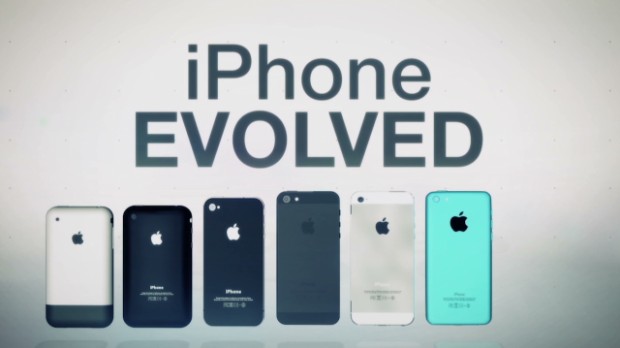 The iPhone evolved NEW YORK (CNNMoney) Tim Cook & Co. are set to unveil the latest iDevices Tuesday.
The iPhone evolved NEW YORK (CNNMoney) Tim Cook & Co. are set to unveil the latest iDevices Tuesday. 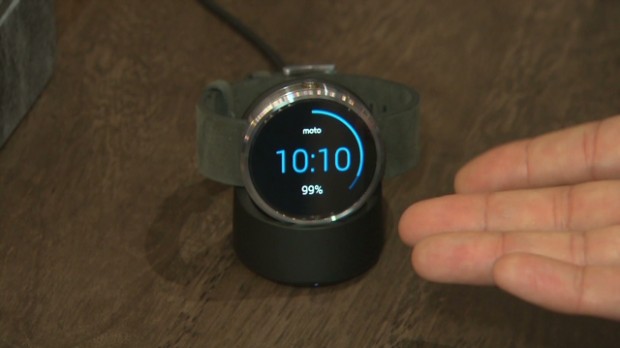 The Moto 360 in 60 (seconds)
The Moto 360 in 60 (seconds) 
